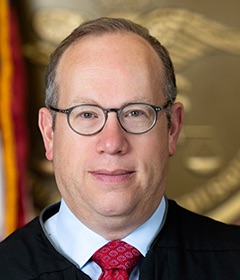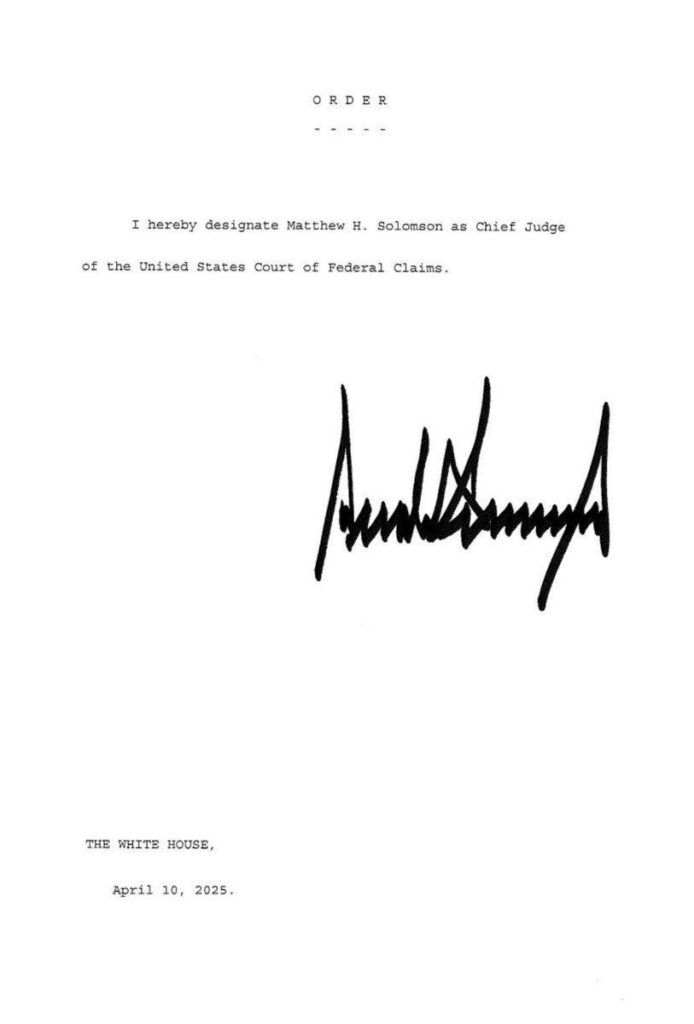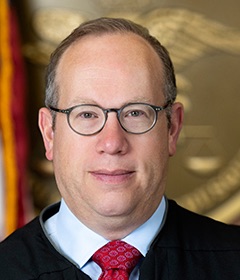Washington Jewish Journal – Special Feature

In an era when it often feels like faith and public life stand at odds, Judge Matthew H. Solomson proves they don’t have to. His story isn’t just about legal excellence—it’s about living a life of deep Torah values while rising to one of the highest judicial roles in America. With his recent appointment as Chief Judge of the U.S. Court of Federal Claims, Solomson became the first Orthodox Jew to hold that title, a historic moment not only for the judiciary but for the greater American Jewish community.

Born into a family of service—his father a U.S. Army colonel, his grandparents immigrants who sought the promise of religious freedom—Solomson’s life has been a journey of bridging tradition and public duty. Today, he calls Silver Spring, Maryland home, where he’s known not just for his legal credentials, but for his humility, warmth, and unwavering dedication to Torah study.
A graduate of Brandeis University, he earned both his J.D. and M.B.A. from the University of Maryland before going on to write what Tevi Troy, former U.S. Deputy Secretary of Health and Human Services, described as “the book” on federal claims litigation. His brilliance in the courtroom is matched by his moral clarity. In the wake of rising antisemitic incidents and campus unrest, Judge Solomson courageously declared he would not accept law clerks from institutions that enable or excuse antisemitism—making his courtroom not just a place of law, but of principle.
Yet it’s not just his intellect or achievements that have earned him respect. It’s his deeply rooted Jewish values. His official biography doesn’t shy away from noting that he is a shomer Torah u’mitzvos, and that he enjoys studying Gemara. He is an active participant in the yadin yadin kollel at Yeshiva University’s Rabbi Isaac Elchanan Theological Seminary (RIETS), and serves as a dean and mentor at the Tikvah Legal Fellowship, where he helps shape the next generation of Jewish legal minds.
In his own words, writing on LinkedIn as he celebrated Pesach with his wife, Lisa, and their children, Solomson thanked Hashem for the opportunity to serve. Quoting Rabbi Lord Jonathan Sacks, he highlighted the concept of cheirus—freedom—not as anarchy, but as ordered liberty, echoing the very foundation of the U.S. Constitution.
Nathan Diament, Executive Director of the Orthodox Union’s Advocacy Center, called Solomson’s appointment “a powerful reminder that one can be deeply committed to Torah and reach the highest levels of public service.” For young Orthodox attorneys across the country, this isn’t just an inspiration—it’s a roadmap.

Outside the courtroom and the beis medrash, Judge Solomson keeps things grounded. He’s a family man who enjoys tennis, beach days, and spending time with his children. Despite his prestigious title and national responsibilities, he remains accessible and genuine—someone who can share a chiddush in the morning and deliver a federal ruling by afternoon.
His journey is more than the story of a man rising to power. It’s the story of a Jewish American success, where limud haTorah and leadership walk hand in hand. It’s a reminder that integrity, emunah, and excellence are not only compatible with public service—they’re essential to it.
As our community watches this moment unfold, one thing is clear: Judge Matthew H. Solomson didn’t just break barriers—he elevated the standard for what it means to be a servant of both Hashem and the American people.














